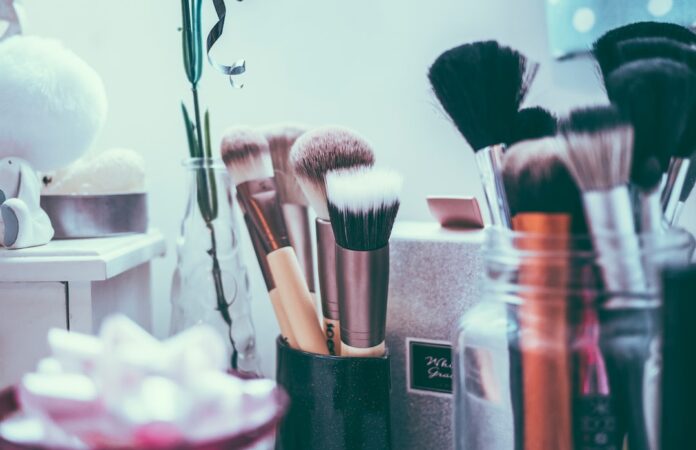Introduction
The battle of the sexes is as old as time. Men and women have been fighting for equality since the dawn of civilization, and this battle continues today in many different ways. One area where the genders differ is in the area of skin care. While the basics of skin care are the same for men and women, there are some distinct differences in the products, techniques, and overall approach to skin care. In this blog, we’ll take a look at how men’s skin care differs from women’s.
Subhead: Different Products
When it comes to skin care, men and women have different needs. For example, women often use products with ingredients such as retinol, hyaluronic acid, and other anti-aging ingredients to help reduce the appearance of wrinkles and fine lines. Men, on the other hand, may need products that help reduce oiliness, reduce acne, and soothe razor burn.
Men’s skin care products also typically use fewer fragrances and dyes than women’s products. Men’s skin is typically thicker and more oily than women’s, so it requires products that won’t clog pores or cause irritation.
Subhead: Different Techniques
Men and women also use different techniques when it comes to skin care. Women tend to focus more on moisturizing and exfoliating, while men tend to focus more on cleansing and toning. Women often use products such as face masks and night creams, while men may prefer products such as shaving gels and aftershave balms.
Subhead: Different Approaches
Finally, men and women have different approaches to skin care. Women tend to take a more holistic approach, focusing on the overall health of their skin and trying to keep it looking young and vibrant. Men, on the other hand, tend to take a more practical approach, focusing on daily cleansing and shaving and taking care of skin issues as they arise.
Conclusion
The battle of the sexes extends to skin care as well. While the basics of skin care are the same for men and women, there are some distinct differences in the products, techniques, and overall approach to skin care. Men should use products that are designed for their specific needs, and take a practical approach to skin care. Women should focus on overall skin health and use products that are designed to keep their skin looking young and vibrant.General skin care tips for both men and women include:
1. Wear sunscreen every day, even on cloudy days, and reapply it every two hours when outdoors.
2. Avoid smoking and excessive drinking.
3. Exfoliate regularly to get rid of dead skin cells.
4. Use a moisturizer to keep skin hydrated.
5. Cleanse skin twice daily with a gentle cleanser.
6. Avoid harsh ingredients such as alcohol and fragrances in skin care products.
7. Use a toner to help balance skin’s pH levels.
8. Get enough sleep and take regular breaks from screens.
9. Eat a healthy diet with plenty of fruits and vegetables.
10. Avoid stress as much as possible.11. Make time for yourself to relax and unwind.
12. Exercise regularly.
13. Get enough sleep every night.
14. Practice mindfulness techniques such as meditation or yoga.
15. Connect with people who make you feel good and positive.
16. Avoid smoking and drinking alcohol.
17. Develop positive coping skills to deal with stress and anxiety.
18. Seek professional help when needed.Yes, it is important to seek professional help when needed. Mental health is just as important as physical health and getting help from a mental health professional can be very beneficial to your overall wellbeing. A professional can help you identify and address any underlying issues, such as depression or anxiety, that may be causing problems in your life. Additionally, a professional can provide support and guidance to help you cope with difficult emotions and challenges.They can help you develop healthy coping strategies and strategies to manage stress and difficult situations. Professional help can also give you the tools to improve communication with family, friends, and colleagues.Finally, a professional can help you identify and address underlying issues that may be contributing to your current difficulties, such as past trauma, depression, anxiety, or relationship issues. A professional can provide insight and guidance to help you make positive changes and create lasting solutions.A professional can also provide you with the support and resources you need to increase your self-awareness and develop the skills you need to better manage your emotions and relationships. They can provide guidance to help you make sound decisions, manage stress, and improve your overall wellbeing. Professional help
Photo by Candice Picard on Unsplash
can also equip you with the tools and support to help you recognize and respond to triggers, manage difficult situations, and develop healthier coping strategies.Mental health professionals can provide a variety of services, such as:
-Counseling: Talking with a counselor can help you process your thoughts and feelings, improve communication skills, and develop healthier coping strategies.
-Psychotherapy: Psychotherapy can help you explore underlying issues that may be contributing to your mental health struggles and provide insight into how to better manage them.
-Medication: Your doctor may prescribe medication to help alleviate symptoms associated with mental health struggles.
-Support groups: Support groups can provide a safe and supportive environment to discuss mental health issues and experiences with others who are facing similar challenges.-Cognitive Behavioral Therapy: This type of therapy focuses on identifying and changing unhelpful thought patterns and behaviors that are contributing to mental health struggles.
-Mindfulness: Mindfulness practices can help you become more aware of your thoughts, feelings, and behaviors, and better manage your reactions to situations.-Exercise: Regular physical activity can help reduce stress, improve mood, increase self-esteem, and reduce anxiety.
-Nutrition: Eating a healthy, balanced diet can help improve your mood and mental health.
-Sleep: Getting enough sleep is important for overall mental health.
-Connecting with others: Connecting with supportive family and friends can help reduce feelings of loneliness and isolation.-Exercising: Exercise can help reduce stress and anxiety, and help improve mood.
-Mindfulness: Mindfulness can help to focus on the present moment and increase awareness of one’s thoughts, feelings, and physical sensations.
-Diet: Eating a balanced diet can help to ensure that your body and mind are getting the nutrients they need to function optimally.
-Relaxation: Relaxation activities such as deep breathing, meditation, and yoga can help to reduce stress and anxiety.
-Creative activities: Engaging in creative activities such as drawing, painting, writing, or playing music can help to reduce stress and increase feelings of wellbeing.-Physical exercise: Exercise has been proven to help reduce stress and anxiety. Taking part in physical activities such as running, walking, or cycling can help to boost energy levels and improve mood.
-Social activities: Spending time with friends and family can help to reduce stress and improve mental health. It can also be beneficial to spend time with other people who share similar interests or who can provide support and understanding.
-Eating healthy: Eating a balanced diet and limiting processed and sugary foods can help to reduce stress and improve overall wellbeing.
-Getting enough rest: Ensuring that you get enough restful sleep can help to reduce stress and improve mental and physical health.-Engaging in physical activity: Regular physical exercise can help to reduce stress levels and improve overall health.
-Practicing relaxation techniques: Taking time to practice relaxation techniques such as yoga, mindfulness meditation, and deep breathing can help to reduce stress.
-Talking to a mental health professional: Speaking to a mental health professional can provide support and advice for managing stress.
-Seeking support from friends and family: Having a strong support system is an important part of managing stress.
-Taking time for yourself: Taking time for yourself to relax, pursue hobbies, or engage in activities that bring you joy can help to reduce stress.-Exercising regularly: Regular exercise can help to relieve stress and increase levels of serotonin, the “feel good” hormone.
-Practicing mindfulness: Mindfulness can help you to become more aware of the present moment and reduce stress.
-Adopting healthy habits: Eating a balanced diet, getting enough sleep, and avoiding drugs and alcohol can help to reduce stress.
-Talking to a therapist: Working with a mental health professional can help you to develop healthy coping skills and manage stress more effectively.-Exercising: Regular physical activity can help to reduce stress and improve your overall health.
-Meditating or practicing yoga: These activities can help to relax and calm your mind and body.
-Spending time with friends and family: Connecting with loved ones can help to reduce feelings of loneliness or isolation which can contribute to stress.
-Taking breaks: Taking regular breaks from work or other activities can help to prevent stress from becoming overwhelming.
-Prioritizing tasks: Taking time to prioritize tasks and responsibilities can help to reduce stress levels.
-Practicing relaxation techniques: Relaxation techniques such as deep breathing, progressive muscle relaxation, and guided imagery can help to reduce stress.-Exercising: Regular physical activity can help to reduce stress levels, improve mood, and increase concentration.
-Eating a balanced diet: Eating a healthy diet can help to support physical-Getting enough sleep:Getting enough sleep can




